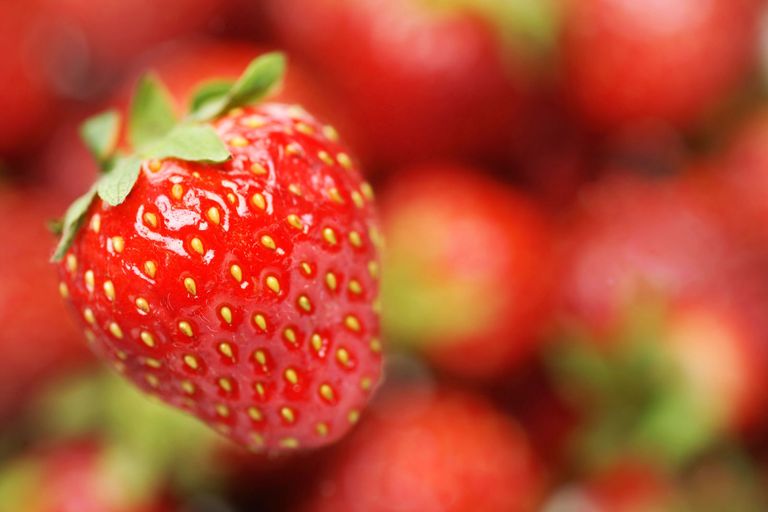
What is Mindfulness?
by Veronika | Jan 10, 2014
Asking for a definition of mindfulness is a bit like asking, “What does a strawberry taste like?” or “What does your favourite piece of music sound like”? Definitions cannot capture the experience of tasting or listening. They can only give us an idea of what the actual experience is like. And each of our experiences is unique to each individual, mine might not be like yours and it might be different in the morning and the evening.
Definitions aim to approximate the experience and put it into concepts that we can relate to. Here are two popular working definitions:
“Mindfulness is paying attention in a particular way: on purpose, in the present moment, and non-judgmentally” writes Jon Kabat-Zinn (1994), founder of the Mindfulness-based Stress Reduction program (MBSR).
“Mindfulness is the willingness and capacity to be equally present with all events and experiences with discernment, curiosity and kindness”, is how Christina Feldman (2012) puts it.
So mindfulness is about awareness but not just any kind of awareness. For example, if I ask you to pay attention to your left foot right now you might think “the shoe is uncomfortable”, or “my right foot is bigger than my left foot”.
In mindfulness you learn to pay openhearted attention to your experience as it arises in your awareness. By focussing on your left foot you start to notice any and all sensations just as they are. As such you may first become aware of the contact of your foot with a sock or a shoe and then of internal sensations like a tingling, buzzing, itching, cold, warmth or a numbness. You may notice a change in these sensations. It takes time to develop this kind of sustained attention to experiences as it arises in awareness. And that’s not all.
We often want things to be different than they actually are.
In mindfulness you learn to pay attention deliberately, in the present moment, to how things are rather than how you wish them to be. Instead of worrying about the future or re-thinking and regretting the past over and over we learn to ground ourselves in the present moment and cultivate kindness and compassion towards our experience whether it is pleasant or unpleasant.
Yes, this is much easier said than done.
Why would I want to learn to do that, you may ask?
The single most important argument for developing your mindfulness skills is because right now and right here is the only moment in which you have a choice about how to respond to what is happening.
We live in a fast paced, multitasking world that fosters “mindlessness” or “going on automatic pilot”.
Time is a sought after commodity. The pressure of juggling work demands, home life, social commitments, and financial responsibilities is stressful. It is easy to become lost in automatic patterns of thinking, feeling and behaviour and stuck feeling anxious or depressed.
Mindfulness will not change life circumstances but it may help you to find a wiser relationship to how you approach your experience.
As you learn to recognise the patterns of your thoughts, feelings and bodily sensations, choice becomes available. Using your experience as information system the possibility arises to step away from unconscious automatic mental, emotional and somatic reactions to difficulties and stress. We learn to tune into our minds, hearts and bodies allowing new responses to emerge.
Mindfulness creates space, where impulsive reactions can be turned into thoughtful responses.
As we learn to recognise when we are running an automatic pattern we learn to pause and be present. Instead of feeling at the mercy of things because we take thoughts and feelings for facts, we can realise that they are actually mental events over which we do have a choice to respond however strong their grip is.
Mindfulness is an ancient core practice in Buddhism. That said, every religion and culture around the world has recognised the wisdom that lies in compassionate, present-moment awareness. Today, mindfulness in the West is a secular practice with ample training available.
Over the past 30 years scientists have researched mindfulness extensively showing that regular practice fosters physical, emotional and mental health and wellbeing. The formal and informal practices entail focussing on the body, breath, movement and interaction and benefits are manifold. Here are a few:
- Increasing presence
- Fostering compassion and kindness towards yourself and others
- Recognise habitual patterns of thinking, feeling and behaving
- Reducing stress and anxiety and building stress resilience
- Stimulating focus and attention
- Adopting a less critical, tight view
- Enhancing creativity and gaining clarity
- Making more attuned decisions
- Finding more flexible responses
- Become more flexible with inevitable change
- Balancing our problem solving attitude and cultivate a more nourishing way of living
- Strengthening the immune system
Finding a better way to cope with stress is relevant for all of us be this at work, where it can help us make better decisions and create a more inspiring working environment, or at home with our family and friends. It can help us become better parents, friends, students, leaders.
Mindfulness finds ample clinical application (MBSR, MBCT etc.) for its therapeutic benefits such as stress reduction, anxiety, depression, chronic pain, eating disorders, addiction, parenting/childbirth. There are ample of apps available that will help you get into and maintain a regular practice such as for example Headspace. Specialist programs are also available for mindful leaders, mindfulness in schools etc.
Reference:
Feldman, C. (2012) http://www.exeter-mindfulness-network.org/about-what-ismindfulness.php
Kabat-Zinn, J. (1994) Wherever you go, there you are. New York
